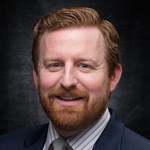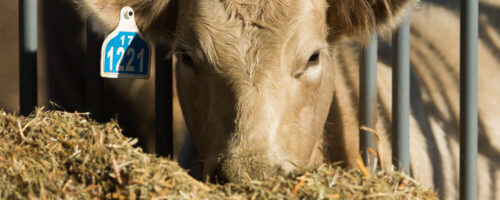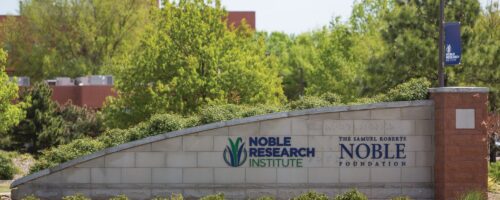The Stormy Present
New thinking and new approaches are the cure for the uncertainty of this stormy present.
One month before issuing the Emancipation Proclamation, Abraham Lincoln sent his annual message to Congress. Lincoln wrote only 403 words, but he articulated his soul’s deepest convictions and cast a vision to confront the uncertainty of his time.
“The dogmas of the quiet past are inadequate to the stormy present,” he wrote. “The occasion is piled high with difficulty, and we must rise with the occasion. As our case is new, so we must think anew and act anew.”
Lincoln’s words spoke to the inescapable responsibility of leadership in crisis. They also speak directly to our current experience as we grapple with the ramifications of a global pandemic. This is our stormy present.
As we seek the backside of a flattened curve, praying the worst is behind us, we take stock of COVID-19’s impact. The loss of human life. The economic tire fire. The body blow to our collective spirit. Uncertainty seems a constant companion, and we are plagued by questions: How do we recover? Will the virus worsen? What comes next?
For those with adult memories of 9/11, we know we are witnessing history. Touchstone events like this irrevocably change society. There’s no going back. Only forward. We cannot control the situation only how we respond. So how do we proceed? Do we allow fear to freeze our every movement? Do we walk blindly with hubris ignoring the practical and safe? No. Banishing uncertainty requires concerted effort and — as Lincoln said — thinking anew.
This pandemic — like most trials — has brought perspective, wiping away the fog of routine and highlighting what is essential: health, family and food. This mindset clarifies our purpose, and purpose empowers our service.
We have seen the unlimited capacity of human compassion throughout this chaotic season. We have witnessed the unquestionable courage of our first responders and frontline healthcare workers, whose scrubs and uniforms cover S-shaped emblems on their chests.
We have also borne witness to the countless allied fields essential to making this nation tick. Mechanics, shelter volunteers, those who stock the grocery store shelves, and countless others have faced unknown risk in service of us all. Society may look only at the reliable hands on the watch face of our country, but these individuals are the gears who make it run.
Likewise, this pandemic has demonstrated the immeasurable value of our agricultural producers, who continue to deliver our most basic need — food. So often, when sectors function uninterrupted, they receive little fanfare or go unnoticed altogether. However, society is built on the foundation of a safe and plentiful food supply chain. Existential thought takes a backseat when people are hungry.
Agricultural producers are equipped for seasons of uncertainty because they have been forged in its fire. They face daily trials against Mother Nature’s whims, fluctuating markets and variables beyond their control. Yet they endure for the benefit of others, and they are able to do so because resiliency is born from struggle. Time and again, history proves this truth.
The Dust Bowl of the 1930s and ’40s devastated ecology and economy in equal measure. More than a quarter million people fled the region. Naysayers said the Great Plains would never recover. Fear gripped a nation. But uncertainty is the catalyst for change, and change requires great courage.
Philanthropist Lloyd Noble spoke to the fundamental truth that the soil and the farmer are the cornerstones of society. He rallied the pioneers of land stewardship and soil conservation to action. He endowed Noble Research Institute to walk alongside farmers and ranchers while providing good information so producers could make confident decisions.
Now this generation has been shaken by COVID’s calamity and awakened to threats lurking on the periphery of society’s awareness. New thinking and new approaches are the cure for the uncertainty of this stormy present.
For all the hardship, let this pandemic’s legacy be that it built humanity’s resilience. Let it be motivation for proactive thinking and bold solutions. Let us embrace discernment and relinquish inadequate past practices. Let it prioritize our actions so that we may safeguard the everyday things, the cheeseburger and apple pie things, the things we have taken for granted.
For many, COVID has swept away the inconsequential. It has enabled us to look at our world with unfettered eyes. It has reminded us of what is truly essential, and we must be intentional in the stewardship of these priorities.
Lincoln challenged a nation to rise to the occasion. Noble modeled this courage during the Dust Bowl. Now we must live it.



Comment